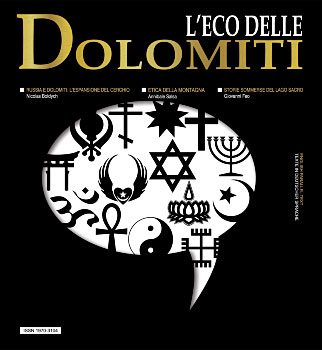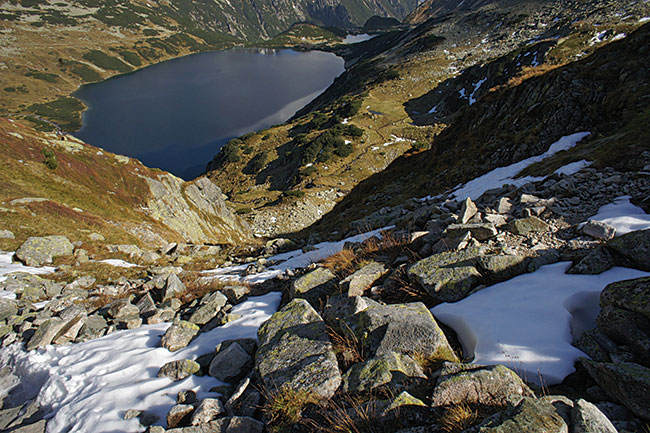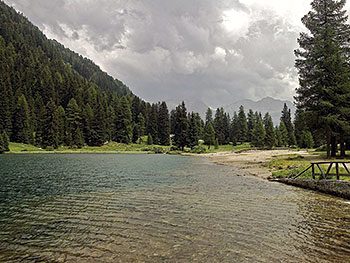

HUMANISTS, AN ENDANGERED SPECIES
Marek Grocholski

First Sunday in November. Outside it is still grey, but I can hear that Ludwik is already about. He slices the bread and puts the tea to boil in the thermos. On the mountain there is a bank of black clouds. The föhn, a strong, warm wind which blows from the high ridges on the northern side of the Tatras. It blows down trees, violently shakes smaller objects, stimulates the imagination and stirs the emotions. Shall we go to the Five Lakes? Yes, yes… I accept immediately.
The way out gives onto the threshold of the valley. The border between two worlds, one the narrow, shadowy Roztoka below, and the other the broad, bright Five Lakes above. A place which can stimulate the most hidden parts of the brain. That dozen metres up through granite elephants polished by the glacier belongs to the real world and at the same time to the mysterious country of the snows, snows which promise something, snows still not quite dreamed of. Snows such as can start on the Tatras and end on the Dolomites or vice versa.
In the logic of a market economy I am not a successful person, but in a humanist context I have had my little moments. My intuition was confirmed by my first trip to Italy in 2007. The Dolomites and the Tatras have something in common. Some places in these mountains, in the former and in the latter, although they are very different and far apart, are part of the same dream, of that common reality which escapes the generally recognised cognitive methods.
In the world of financial accounts and mathematical formulae, intuition is not taken seriously. Poland, at the beginning of the Nineties. I was enjoying the new-found liberty, rejoicing in the change of regime. In the atmosphere of general enthusiasm, the Warsaw Stock Exchange had taken over the headquarters of the hated pseudo-workers’ party which had ruled the country for more than forty years. At the time I was ashamed of my intuition, of my distrust of the financial markets, which was however clearly felt. It is not possible that the process of forced enrichment, detached from socially useful work, can bear worthwhile fruitage.

Today I feel a kind of bitter satisfaction. The leading Polish daily, the “Gazeta Wyborcza ” published an article about the Italian philosopher Giorgio Agamben under a title that says it all: “The dark bankers are stealing our future”. In the spirit of the text we would add: the priests of the cruel religion of money steal the flavours, the colours and aromas of the world. They would like to steal our dreams too, even those where the Tatras and the Dolomites meet.
When the last issue of “L'Eco delle Dolomiti” failed to come out, I thought with sadness that the invisible hand of the market or rather the financial mafia had robbed me personally of the small pleasure of picking up a good magazine once every six months. Fortunately humanists are not yet heading for extinction – there is the new “L'Eco delle Dolomiti”.